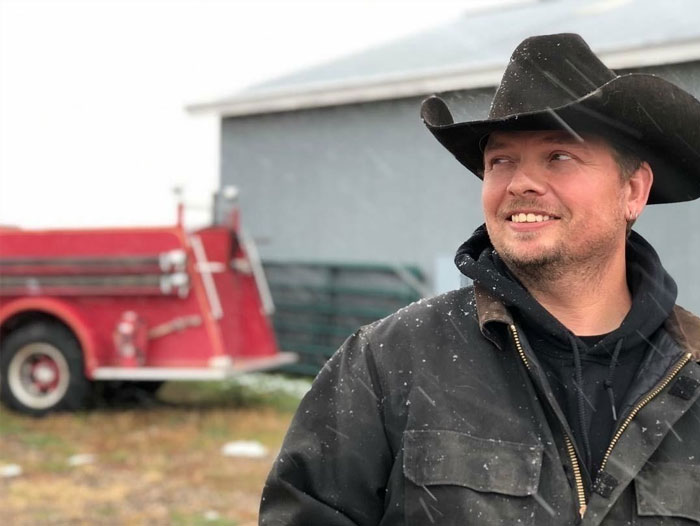90% of Americans Want to Know Where Their Beef Comes From
October 29, 2019 | 3 min to read

GILETTE, Wyo. –More than ever, consumers are paying attention to their food and its origins. If you want to know where that mango came from, all you have to do is to look at the label. But when it comes to beef, it’s much harder to tell—especially for consumers who want to purchase meat that was raised and butchered in the U.S., says Mike Galloway, who ten years ago left the corporate world of radio to run his stepfather’s cattle ranch in Western Wyoming.
He says it’s time to restore labeling laws that were watered down in 2015, making it easier for foreign beef exporters to pass their beef off as “made in the U.S.A.” Galloway says, “There is a place for imported beef in the U.S., import-export and trade is important to our economy. All I ask is that we stop misleading the American people, that we stop blaming American cattle producers for environmental disasters when foreign lobbyists and their policies are causing countries to destroy the rain forest to supply us with what they call ‘USA Produced Beef.'”
A YouTube video Galloway made on this topic has garnered more than 196,000 views. In an interview, Galloway can explain:
- Why corporate lobbyists for meatpackers are wrong when they argue that all beef is the same, regardless of where it was born and raised, ignoring environmental, production and food safety issues
- What country of origin laws are and how the beef industry became exempt from them in 2015; do such laws hurt or help the U.S. cattle industry?
- Why it’s significant that 80% of U.S. finished beef comes from four giant companies
- How the current use of the Product of the USA tag on beef is harming consumers
- What consumers can do to be certain that the beef they buy was raised in the U.S. and the role consumers can play in label reform
About Mike Galloway
Mike Galloway and his wife, Erin, are ranchers in Northeast Wyoming. They are also creators of the largest YouTube and social media brand in Wyoming, Our Wyoming Life, in which they chronicle the hardships of managing a ranch and a massive change in their life. Mike is a former DJ whose syndicated radio show was broadcast on more than 200 radio stations nationwide. He went on to become a vice president of operations with a prominent East Coast radio group. When his wife’s stepfather became ill, Mike and Erin both left their corporate jobs to go to Wyoming to help Erin’s mom run the family ranch. Now he speaks to agricultural groups and corporations about managing change, offering the program From Boardroom to the Ranch and Back: The Lessons I Wish I Knew from the Ranch.
